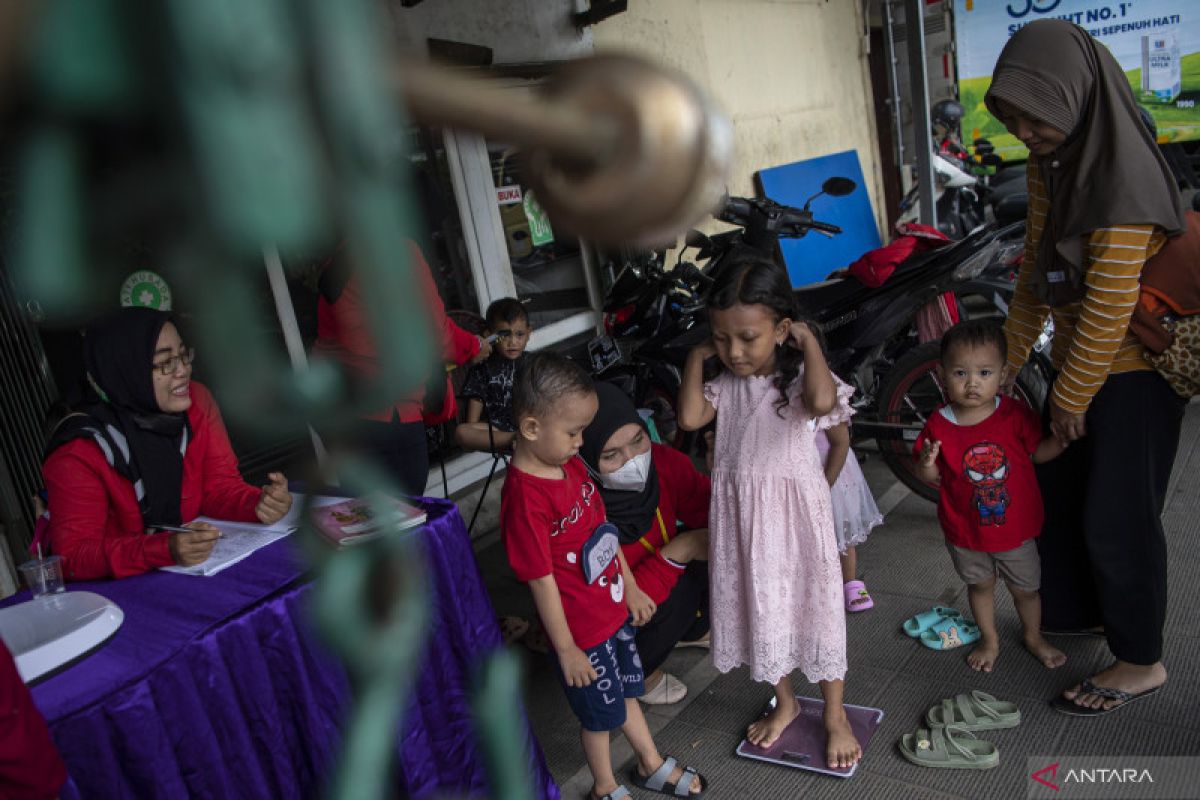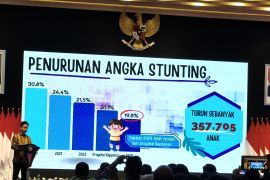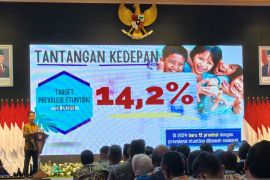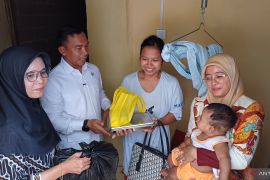"I report that the result of the case numbers of 2022 SSGI fell, from 24.4 percent in 2021 to 21.6 percent," Sadikin stated during the 2023 National Work Meeting of the Proud Kencana Program and Acceleration of Stunting Reduction in Jakarta, Wednesday.
The minister highlighted that several provinces -- South Sumatra, North Kalimantan, South Kalimantan, and Riau -- had succeeded in reducing the number of stunting cases by five percent from 2021 to 2022.
During that period, the number of stunting cases decreased, from 24.8 percent to 18.6 percent in South Sumatra, from 27.5 percent to 22.1 percent in North Kalimantan, from 30 percent to 24.6 percent in South Kalimantan, and from 22.3 percent to 17 percent in Riau.
In addition, during the 2021-2022 period, two provinces had succeeded in reducing the number of stunting cases by around three percent in their regions.
West Java Province has recorded success in reducing the number of stunting cases, from 24.5 percent in 2021 to 20.2 percent in 2022 and from 23.5 percent in 2021 to 19.2 percent in 2022 in East Java Province.
However, the health minister highlighted the need to register a decrease in cases based on the number of children experiencing stunting in an area and not just in terms of the percentage.
The minister also drew attention to several provinces where the number of stunting cases had increased in 2022 though he did not mention their names.
Related news: Stunting indicative of uneven nutrition fulfilment in children: BKKBN
The government is targeting to reduce the number of stunting cases to 14 percent by the end of 2024. In order to achieve the target, the government must strive to reduce the number of stunting cases by 3.8 percent each year.
Sadikin called to pay attention to two important intervention programs in order to tackle stunting in the form of meeting the nutritional needs of pregnant women and children aged from six to 24 months.
The Ministry of Health has improved health and nutrition services, health checks for pregnant women, examinations to detect anemia, and provision of blood-boosting tablets for adolescents in a bid to reduce stunting.
In order to support health checks for pregnant women, the Ministry of Health seeks to provide ultrasound examination tools at public health centers (puskesmas).
Currently, ultrasound examination tools are available in around five thousand puskesmas, and the government is targeting that the examination tools can be gradually provided in 10 thousand puskesmas.
Moreover, Sadikin stated that the government is providing anthropometric tools to support measuring the physical condition of children in order to detect early risk of stunting in around 100 thousand integrated health posts (posyandu).
"It is hoped that by 2023, some 300 thousand posyandu will already have standard, domestically-made, and good-quality anthropometric tools," he stated.
The Ministry of Health is also intensifying campaigns to increase the consumption of food sources of animal protein, such as fish and eggs, to reduce the risk of stunting.
Related news: Jokowi attributes reduction in stunting prevalence to parties' work
Related news: Minister highlights local govts' critical role in stunting reduction
Translator: Cindy Frishanti Octavia
Editor: Yuni Arisandy Sinaga
Copyright © ANTARA 2023












